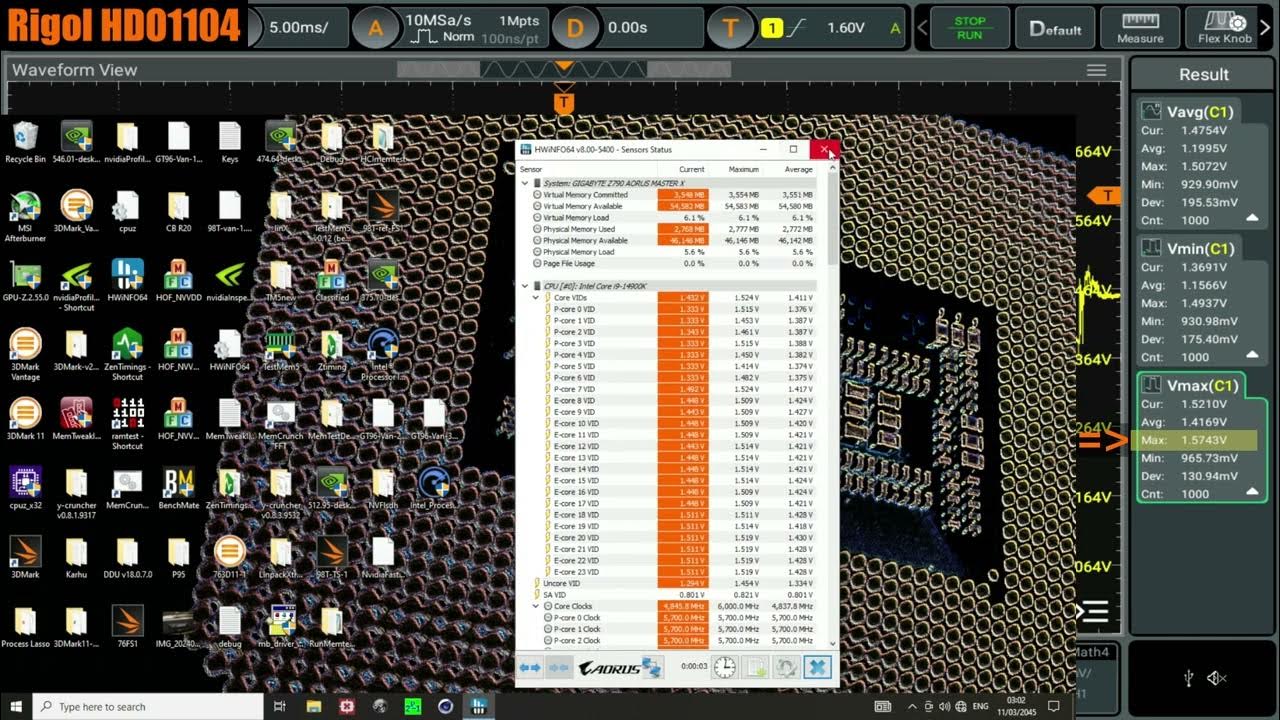Intel's Biggest Failure in Years: Confirmed Oxidation & Excessive Voltage
Summary
TLDRIntel has acknowledged oxidation and voltage issues with its 13th generation CPUs, leading to instability and potential CPU failure. The company initially downplayed the oxidation problem, only admitting it after public pressure. Tech outlets and users report high failure rates, and Intel's lack of transparency and delayed response have raised concerns. Consumers are advised to update BIOS and microcode, while those experiencing instability should consider RMA. The situation casts doubt on Intel's reliability and requires a clear commitment to customer support.
Takeaways
- 😨 Intel has admitted to oxidation issues with its 13th gen CPUs, which were initially only partially disclosed in a statement focusing on voltage issues.
- 🔍 The oxidation problem was identified during the gate formation process in the CPU manufacturing, potentially leading to corrosion and instability.
- 💻 Intel's initial public statement did not mention oxidation, only addressing voltage and microcode changes, which was seen as misleading by some.
- 🤔 The company's handling of the situation has been criticized for lack of transparency and slow response, raising questions about internal disorganization or calculated obfuscation.
- 🛠️ Intel is planning microcode and BIOS updates to address the instability issues, but the exact impact on performance is yet to be determined.
- 🚫 Intel reportedly rejected some RMAs (Return Merchandise Authorizations) for B2B and B2C CPUs during the period when they were aware of the oxidation issue, which has been deemed inexcusable.
- 📅 The exact date range of affected CPUs has not been clearly specified by Intel, leading to confusion and a call for more transparency in identifying affected products.
- 💡 Consumers are advised to update their BIOS and keep an eye out for Intel microcode changes, especially if experiencing system instability.
- 🚨 There are concerns that affected CPUs might be problematic in the used market, with sellers potentially not disclosing their instability issues.
- 🔎 Ongoing discussions and investigations are happening, with some users reporting high failure rates, indicating the severity of the issue in certain environments.
Q & A
What issue did Intel admit to regarding its 13th gen CPUs?
-Intel admitted to issues with oxidation and voltage problems in its 13th gen CPUs, which could cause instability and potential chip failure.
What is the significance of the oxidation issue mentioned in the script?
-The oxidation issue is significant because it's a physical hardware-level defect that occurs during the fabrication process and could lead to corrosion, instability, and eventual chip failure.
What is the role of microcode changes in addressing the CPU instability issues?
-Microcode changes are part of the solution to address the instability issues caused by elevated operating voltages. These changes aim to correct the algorithm that results in incorrect voltage requests to the processor.
Why is there criticism regarding Intel's communication about the oxidation issue?
-Criticism arises because Intel initially published a statement addressing only voltage issues and later appended information about the oxidation issue to a Reddit post, which seemed less transparent and potentially misleading.
What is the expected impact of the microcode and BIOS updates on affected CPUs?
-The microcode and BIOS updates are expected to resolve the instability issues caused by elevated voltages. However, the long-term impact on CPUs that have been exposed to excessive voltage for a long time is uncertain and may require further evaluation.
What actions should consumers take if they own 13th or 14th gen Intel CPUs?
-Consumers should update their BIOS and keep an eye out for Intel's microcode updates. If they experience any system instability, they should consider applying for an RMA.
What is the potential impact of the CPU issues on business customers like server providers?
-The CPU issues can lead to server instability, which may result in significant financial damages due to players abandoning games or services, thinking the problem lies with the software rather than the hardware.
What is the 'Asus treatment' mentioned in the script referring to?
-The 'Asus treatment' refers to a situation where a company must revisit and reprocess all rejected RMAs, evaluating whether customers were owed replacements based on new information or admissions about product issues.
What does the script suggest about the transparency and communication from Intel regarding the CPU issues?
-The script suggests that Intel's communication has been lacking in transparency, with important information about the oxidation issue not being disclosed promptly or clearly, leading to public pressure and criticism.
What is the script's recommendation for consumers experiencing instability with their Intel CPUs?
-The script recommends that consumers experiencing instability should apply for an RMA, as the potential for irreparable damage from long-term exposure to excessive voltage makes it uncertain whether updates will fully resolve issues.
What steps does Intel need to take to address the concerns raised in the script?
-Intel needs to provide clear information on affected CPU date ranges, offer warranty extensions, commit to supporting customers with affected CPUs, and ensure transparency in communication about the issues and their resolution.
Outlines

Cette section est réservée aux utilisateurs payants. Améliorez votre compte pour accéder à cette section.
Améliorer maintenantMindmap

Cette section est réservée aux utilisateurs payants. Améliorez votre compte pour accéder à cette section.
Améliorer maintenantKeywords

Cette section est réservée aux utilisateurs payants. Améliorez votre compte pour accéder à cette section.
Améliorer maintenantHighlights

Cette section est réservée aux utilisateurs payants. Améliorez votre compte pour accéder à cette section.
Améliorer maintenantTranscripts

Cette section est réservée aux utilisateurs payants. Améliorez votre compte pour accéder à cette section.
Améliorer maintenantVoir Plus de Vidéos Connexes

Intel's CPU Crashes Explained

Why We Can't Recommend Intel CPUs - Stability Story So Far

Turning off "Intel Default Settings" with Microcode 0x129 DISABLES THE VID/VCORE LIMIT

【Intel最後のCPU?】第14世代Core i9を徹底検証!電力&発熱ヤバイ(地獄)【Core i9-14900K】

This is a disaster (for Intel)

Motherboard Default settings could be COOKING your CPU!
5.0 / 5 (0 votes)
